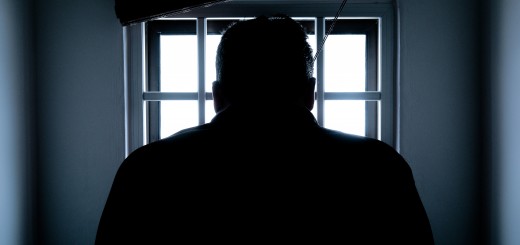Poking the Bear? SCC Leaves Prostitution in Hands of Parliament, Striking Down Harmful Laws in Bedford
To end its 2013 sessions, the Supreme Court of Canada (“SCC”) released its judgment in Canada (Attorney General) v Bedford, [2013] 3 SCR 1101 [Bedford], effectively striking down all of the current laws restricting to autonomous prostitution. I released a preliminary post summarizing the legal basis for the judgment shortly after the decision was released, here. Writing for a unanimous court, Chief Justice McLachlin held that the ss. 210(1) (keeping or being in a bawdy-house), 212(1)(j) (living on the avails of prostitution), and 213(1)(c) (communicating for the purpose of prostitution) provisions of the Criminal Code, RSC, 1985, c C-46 [Criminal Code] were all in violation of s. 7 Charter rights and could not be saved under s. 1. In issuing this judgment, the SCC shifted the onus of regulating aspects of prostitution back to Parliament, in addition to shaping s. 7 Charter jurisprudence.
Section 7 Principles of Fundamental Justice: Clarified
Security of the Person
In the Bedford decision, the SCC only dealt with the constitutionality of the impugned provisions under s. 7 of the Charter, and easily found s. 7 to be engaged with respect to security of the person, passing the first barrier of the analysis. The security of the individuals of interest, prostitutes, was found to be compromised because the provisions not only imposed conditions on their work, but impose fundamentally dangerous conditions (Bedford, para 60). By preventing prostitutes, who are engaging in a legal activity, from taking safety and security measures by hiring security or operating in a safe (but bawdy) dwelling house, risks were created in the work.
Arbitrariness, Overbreadth, and Gross Disproportionality
Three principles of fundamental justice were at the forefront of the case: arbitrariness, overbreadth, and gross disproportionality. All three are relatively new additions to the s. 7 arsenal, and all three are relatively similar in function. However, the SCC in Bedford provided some much needed clarity with respect to their distinction. Arbitrariness and overbreadth are focused on laws that infringe rights and are incongruous with what the law seeks to achieve, while gross disproportionality occurs when the law is connected to the purpose, but the impact of an infringement is so severe that it violates our fundamental norms (paras 107-109). Put simply: arbitrariness occurs when there is no connection between the effect and object of the law, that is, there is no rational connection between the occurrence of a s. 7 breach and the object of the law itself (para 111). This partially contrasts with overbreadth, which occurs when the law interferes with some conduct beyond its objective, and “goes too far” (para 101).
The SCC in Bedford noted that definitional gaps for arbitrariness and overbreadth were left after the keystone case of Chaoulli v Quebec (Attorney General), [2005] 1 SCR 791 [Chaoulli], with respect to the requisite level of disconnect between the effect and purpose of the law. Specifically, it was left unclear whether the effect of the law renders it bad when (1) it is inconsistent with or (2) has absolutely no connection to the objective of the law, rendering it unnecessary (para 118). It is clarified that the effect of a law may be inconsistent with the objective, but the evidence must ultimately show that there is no connection between the effect and purpose of the law, causing the law to violate basic norms (para 119). Gross disproportionality, on the other hand, only occurs when the effect of the law is grossly disproportionate to the objective of the law, only applying in extreme cases where the deprivation is completely out of sync with the objective of the law (para 120).
Applying the Principles
The arbitrariness, overbreadth, and gross disproportionality principles as defined above are best exemplified in the Bedford decision. With respect to the s. 210 bawdy-house provision, the SCC upheld the lower court decision that it was maligned with the principles of fundamental justice on the basis that the aforementioned harms to prostitutes are grossly disproportionate to the deterrence of community disruption that is the object of the law.
…Parliament has the power to regulate against nuisances, [but] a law that prevents street prostitutes from resorting to a safe haven…while a suspected serial killer prowls the streets, is a law that has lost sight of its purpose (para 136).
Similarly, the s. 212(1)(j) living on the avails of prostitution provision was found to be overbroad insofar as it captures non-exploitative relationships, contrary to the objective of the law (paras 139-145). In thusly capturing bodyguards, managers, and legitimate drivers, the law causes harm by preventing prostitutes from taking certain safety precautions.
The s. 213(1)(c) communicating in public for the purposes of prostitution provision, which was perhaps the most contentious of the three provisions, was found to be grossly disproportionate by the SCC. This perhaps best exemplifies the SCC’s stance on the principle of gross disproportionality, as the legal reasoning of the Court of Appeal was criticized and overruled. As such, the SCC appropriately treated prostitution not as a social harm, but as a mere nuisance, which colours the entire decision, and may heavily influence the approach that Parliament may take following the decision.
None of the impugned laws were saved by s. 1 of the Charter (paras 161-163).
Can Parliament Succeed in Criminalizing Sex Trade between Consenting Adults?
The decision in Bedford was stayed for 12 months, giving Parliament until December 2014 to issue a legislative response, should they decide to, before the repealed laws take effect. The SCC has made it very clear now where they stand with respect to these types of laws, and in drafting new legislation, Parliament will have to exercise great care to ensure that Charter rights are not prima facie infringed. To-date, the Harper government has not made any official announcements regarding re-legislating prostitution, but it seems inevitable that some action will be taken by the notoriously ‘tough-on-crime’ Conservative majority, which I have previously discussed at length. The day that the Bedford judgment was released, Justice Minister Peter MacKay quickly released a statement, voicing his concern:
…we are reviewing the decision and are exploring all possible options to ensure the criminal law continues to address the significant harms that flow from prostitution to communities, those engaged in prostitution, and vulnerable persons.
It is unclear whether this statement inherently points to new legislation, or if it refers strictly to the already extensive Criminal Code provisions that protect from harmful forms of prostitution, such as exploitation and forced sex trade.
The eponymous Terri-Jean Bedford has posed an extensive and cheeky list of questions for Prime Minister Harper to consider prior to legislating prostitution. The list serves to advocate for the regulation of sex trade between consensual adults as arbitrary and fruitless. While extremely tongue-in-cheek, Bedford herself outlines the great difficulty that Parliament will have in 2014. Crafting criminal or regulatory legislation to govern prostitution is no simple task, and as Bedford has made clear, any new laws have the great potential to fail due to vagueness or repeating the mistakes of the newly repealed legislation.
The regulation of prostitution between consenting adults is often attacked as a violation of privacy, which is contrary to the trend towards keeping the state out of the bedrooms of its citizens. Moreover, it is unlikely that any future criminal laws will be successful in eradicating prostitution. Indeed, if the Conservative government is concerned with the harm that prostitution threatens to society, driving the industry underground and under the proverbial radar will only amplify the effects that the unconstitutional ss. 210(1), 212(1)(j), and 213(1)(c) were deemed by the SCC to propagate. Indeed, the SCC made it clear in Bedford that much of the harm of prostitution (which itself is not illegal, in a legal vacuum) comes from the historical backdoor regulation of the sex trade, and the tragic events surrounding Robert Pickton were even acknowledged with respect to client screening (para 157). As such, criminalization of johns or prostitutes themselves has the potential itself to threaten the safety of sex workers, and for the reasons in Bedford, may nonetheless be unconstitutional.







Join the conversation